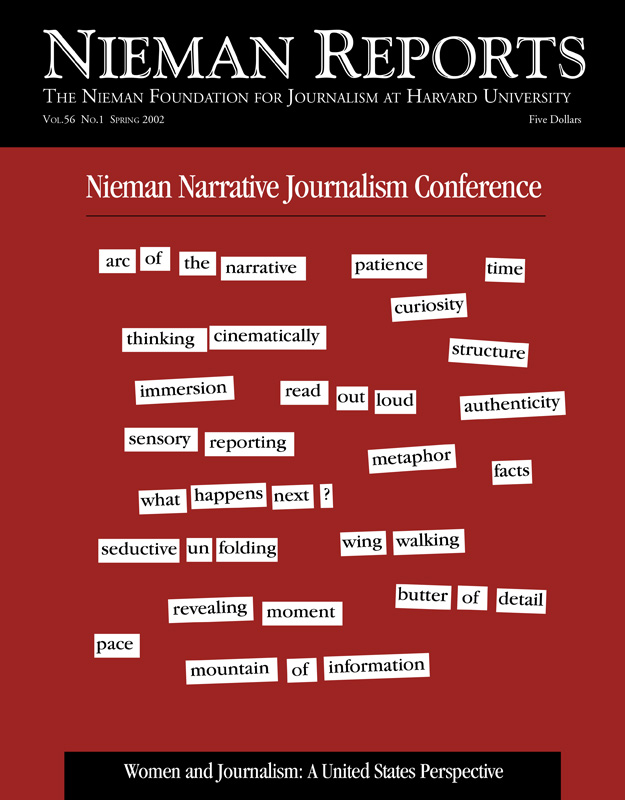“What does ‘good work’ in journalism look like?” This question is at the heart of a book written by three distinguished psychologists who set out to examine, through The Project of Good Work, the factors that permit and sustain work of expert quality in a range of professional endeavors. Jim Carey, who is CBS Professor of International Journalism at the Columbia University Graduate School of Journalism, reviews what the authors discovered when they focused on the practice of journalism today. He finds them “pessimistic” about the future.
Radio journalist Andrew Sussman explores the power of storytelling as exemplified by stories that listeners contributed to National Public Radio and were collected in a book (and audiotapes) entitled, “I Thought My Father Was God: And Other True Tales From NPR’s National Story Project.” Sussman describes the stories as being ones that “keep you in the car listening, despite the fact that you’ve reached your destination.…”
Katie King, a journalist who has worked extensively in online news, challenges us to think more broadly about the argument law professor Cass Sunstein puts forth in his book, “Republic.com.” He writes that the Internet’s technological ability to tailor delivery of news to suit already-formed interests and opinions of individuals poses a threat to a robust deliberative democracy that thrives on the respectful exchange of diverse points of view. King presents his perspective, then raises her own intriguing questions.
Robert Sherrill, a long-time member of The Nation’s staff, describes discoveries made by former broadcast journalist Marvin Kalb when he looked at press coverage at the start of the Clinton-Lewinsky story in his book, “One Scandalous Story: Clinton, Lewinsky, & 13 Days That Tarnished American Journalism.” What disturbed Kalb about press treatment was “the atmosphere of almost total anonymity in which they [sources] operated.”
Peter A. Brown, an editor and editorial columnist at the Orlando Sentinel, finds a lot to recommend about Bernard Goldberg’s best-selling book, “Bias: A CBS Insider Exposes How the Media Distort the News.” Brown writes that it would be “foolish—especially for journalists—to ignore the chord that ‘Bias’ has struck with a significant portion of the book-reading public and…with the population in general.”
Wilson Wanene, a Kenyan-born freelance journalist who lives in the United States and writes about African media and political issues, introduces us to British journalist Michela Wrong’s impressive reporting in her book, “In the Footsteps of Mr. Kurtz: Living on the Brink of Disaster in Mobutu’s Congo,” the story of what happened and why during the more than 30-year rule of Mobutu Sese Seko.
David B. Green, a 2002 Nieman Fellow and arts and books editor of The Jerusalem Report in Israel, invites us along as he follows the differing paths of two Boston Globe reporters who each wrote a book about a religious people with connections to the Middle East. In “The Body and the Blood: The Holy Land’s Christians at the Turn of a New Millennium,” Charles Sennott explores the political and social challenges of Christians who live amid Jews and Muslims. And in “Home Lands: Portraits of the New Jewish Diaspora,” Larry Tye describes the varying circumstances of Jewish communities which exist outside of Israel.


